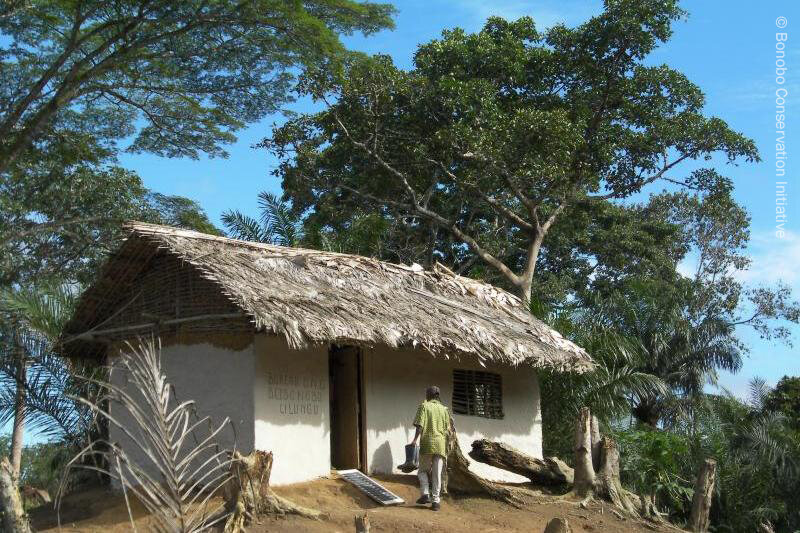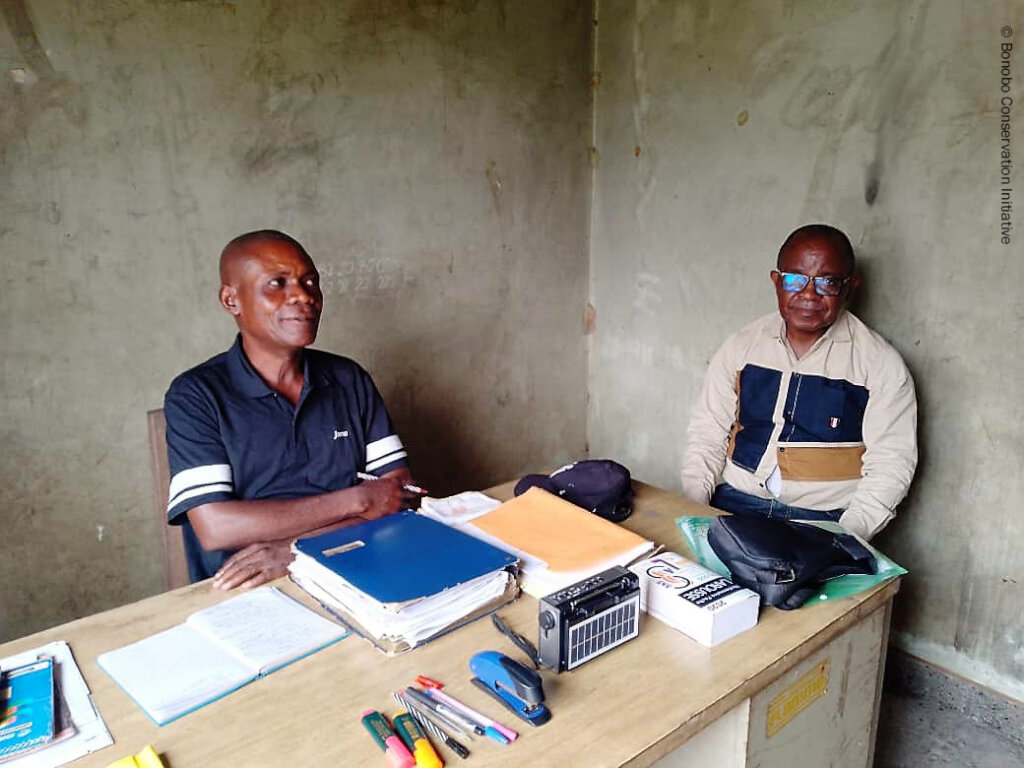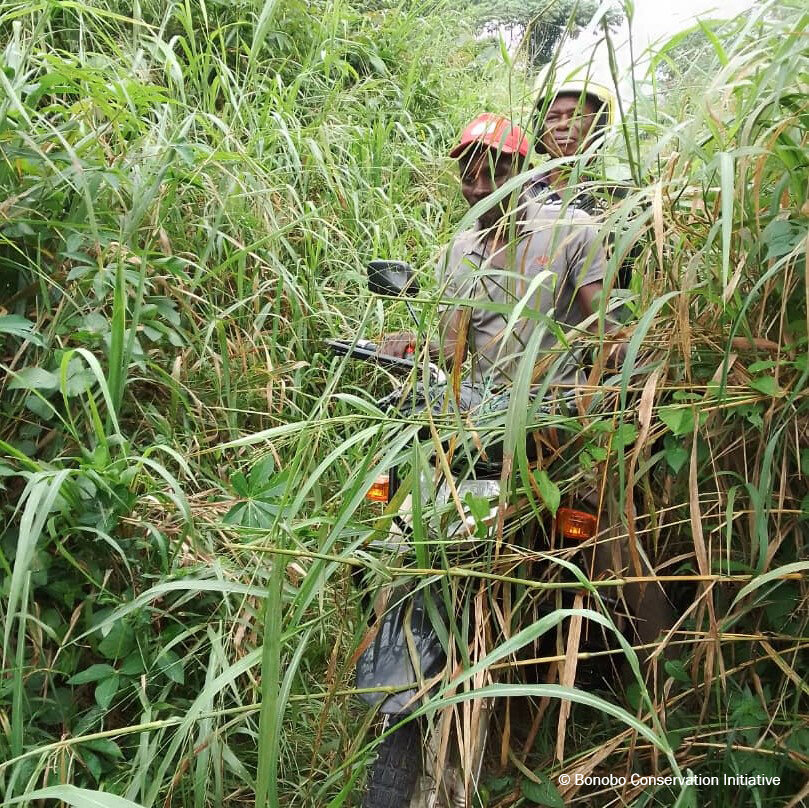By Rebecca Bossen | Communications Director
We are thrilled to announce that The Nature Conservancy is partnering with BCI to help preserve a critical region within the bonobo habitat. With The Nature Conservancy’s generous support, we are taking major steps toward establishing official protection for the Lilungu forest and preparing for long-term, sustainable financing through REDD+, in cooperation with local communities.
Lilungu is a haven of bonobo protection. The local Balanga people have strong taboos against hunting bonobos, as well as deep knowledge about the bonobos and their habitat. BCI has worked in Lilungu since 2005, supporting monitoring teams and collaborating with Lilungu residents to address community needs.
Lilungu links a vital habitat corridor between Sankuru Nature Reserve and Lomami National Park to the south and Kokolopori Bonobo Reserve (and other protected areas) to the north. Habitat corridors are hugely important to conservation because they enable bonobos and other wildlife to range freely, promoting genetic diversity and allowing animals access to necessary resources.
What’s new in Lilungu?
BCI recently sent a team to Lilungu to collaborate with representatives from our local NGO partner APBL (Association pour la Protection de Bonobo de Lilungu) and lay the groundwork for the next phase of work. The team was led by Dr. Norbert Mbangi Mulavwa, the scientific director of CREF(Centre de Recherche en Écologie et Foresterie). Mbangi has a long association with Lilingu. He has been instrumental in the development of the site since BCI began operations there, leading multiple trainings for the local monitoring teams.
This summer, after an arduous journey on nearly impassable roads, Mbangi and his fellow team members arrived in Lilungu and engaged in information exchange with APBL and the local teams. The Lilungu teams provided up-to-date reports on the bonobos and APBL’s conservation efforts. After introducing the goals of the current project, Mbangi provided additional training for the trackers. He also assessed the capacity and the material needs of the APBL in order to help them prepare for the next phase of the project. Mbangi had the chance to observe the Iyende bonobo group himself. Thanks to the consistent work of the trackers, the bonobos are so habituated to human presence that one of the bonobos remained relaxed in a sleeping nest for the whole ninety minutes that the team was present. Habituation also brings some challenges—several farmers have reported that bonobos are helping themselves to bananas and other crops! As we move forward, we will continue to find ways for humans and bonobos to live in harmony. The community is excited about scaling up protection of their forest—and so are we!
What’s next for Lilungu?
Participatory mapping with local communities will soon be underway, a very important step in securing designation as a protected area. We’re preparing to conduct updated biological surveys to determine the presence and distribution of the vast variety of species within the Lilungu forest. We will also be reassessing threats to the forest and its wildlife so that we can determine the most effective ways to protect it.
Protecting the Lilungu forest is a longstanding goal, and you can make a difference today! While the support from TNC is a huge boost, we need matching funds in order to help the Lilungu communities safeguard bonobos and their vital habitat. Together, we can make this dream a reality!
Thank you so much for your support.
Project reports on GlobalGiving are posted directly to globalgiving.org by Project Leaders as they are completed, generally every 3-4 months. To protect the integrity of these documents, GlobalGiving does not alter them; therefore you may find some language or formatting issues.
If you donate to this project or have donated to this project, you can receive an email when this project posts a report. You can also subscribe for reports without donating.
Support this important cause by creating a personalized fundraising page.
Start a Fundraiser

